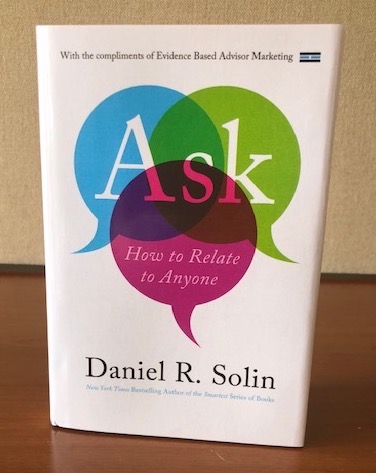Quick update
Here’s what never gets old for an author: Opening up the cartons containing advance copies of your book. Advance copies of Ask just arrived and I couldn’t be more excited. The book won’t be published until October, when retail versions will be available.
This version shows what co-branding the cover would look like, and has a sample message bound in the book. The final cover will have book “blurbs” added. I have been gratified by the very kind responses to my requests asking prominent authors, psychologists and neuroscientists to “blurb” Ask.
Details on co-branding can be found here.

Ask Abused
The underlying principles in Ask were simultaneously validated and abused in this article by Barry Davret.
Mr. Davret tells the story of how he was persuaded to join a mentorship program and sign a loan commitment for $12,500, even though he was strapped for cash at the time and in no position to make that kind of commitment.
I had a sick feeling reading the article.
The salesman used the principles in Ask in a manipulative and contrived way. He made Mr. Davret feel very important by instructing his assistant not to interrupt the meeting and engaging in other gestures (putting away his cell phone, etc.)
He took extensive notes. He kept the focus on Davret by asking questions and follow-up questions.
Davret was impressed. He stated: Nobody had ever made me feel like I was a man of such importance and stature.
I’m not surprised that the “mentor” was successful in extracting a large sum of money from a vulnerable person. I know the power of the lessons in Ask. They are based on sound research.
However, this is precisely how not to implement Ask.
Manipulating and deceiving others is the antithesis of Ask. Ask is for those who want to deepen their relationships in a sincere way. You won’t find happiness misusing it to extract a short-term advantage.
